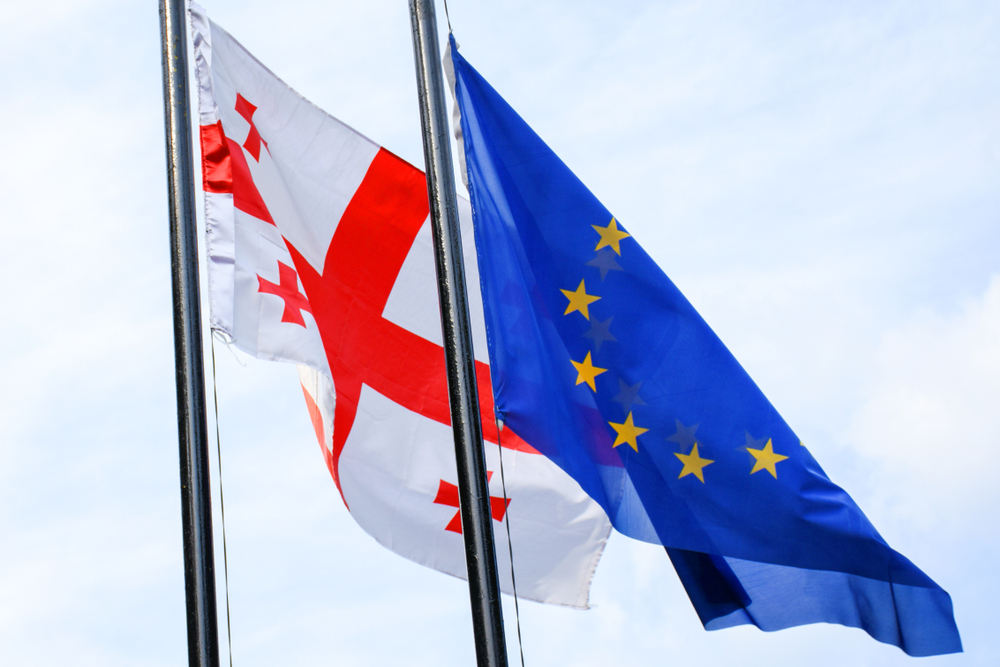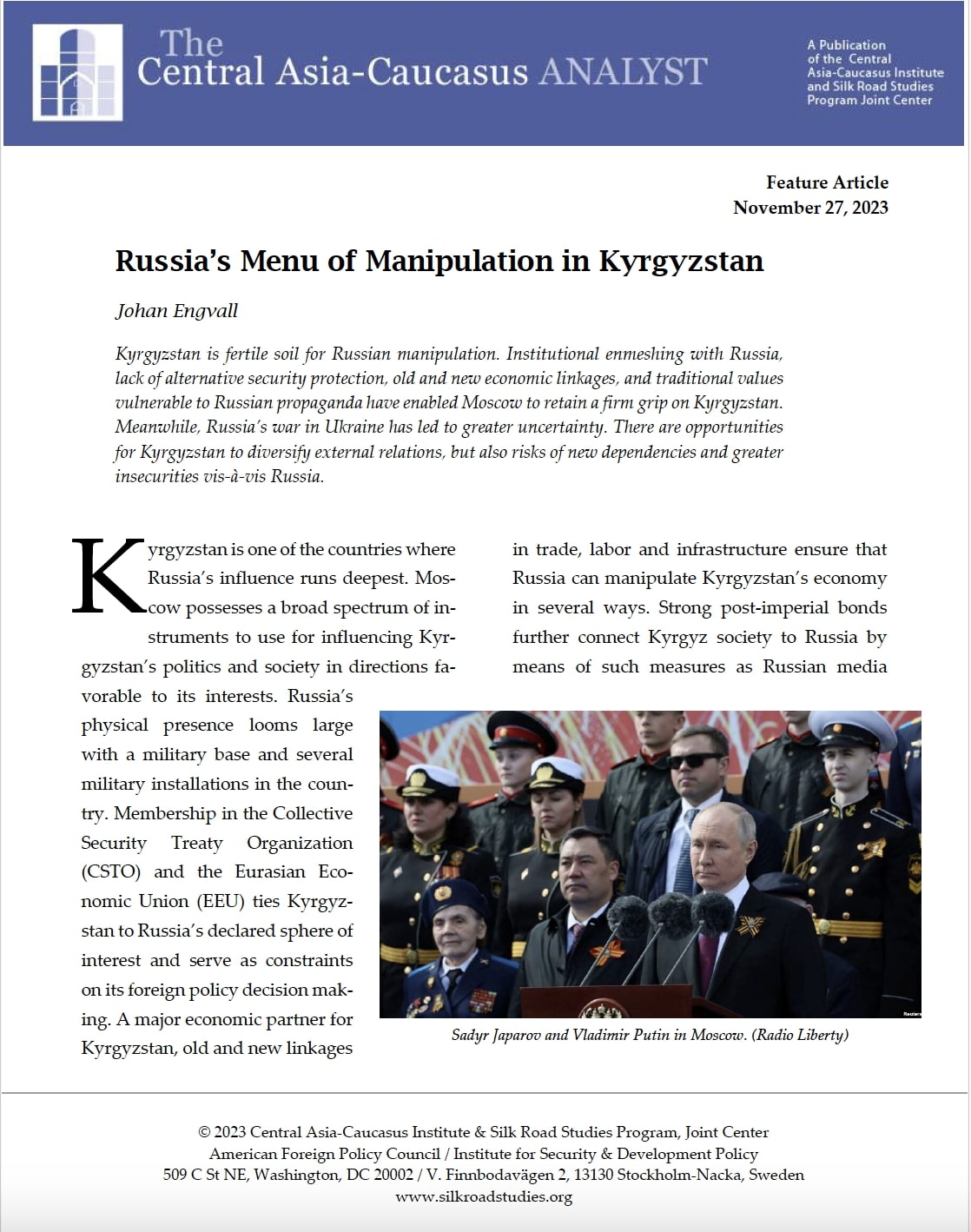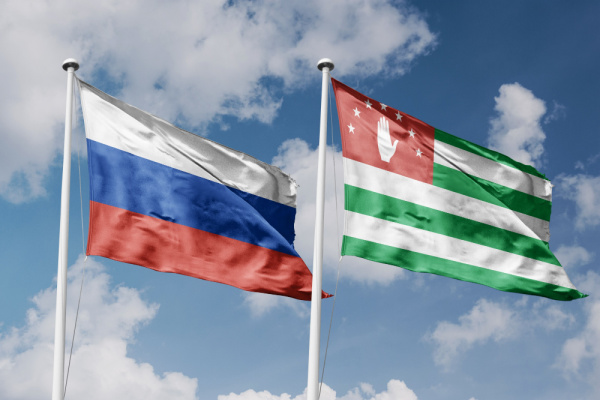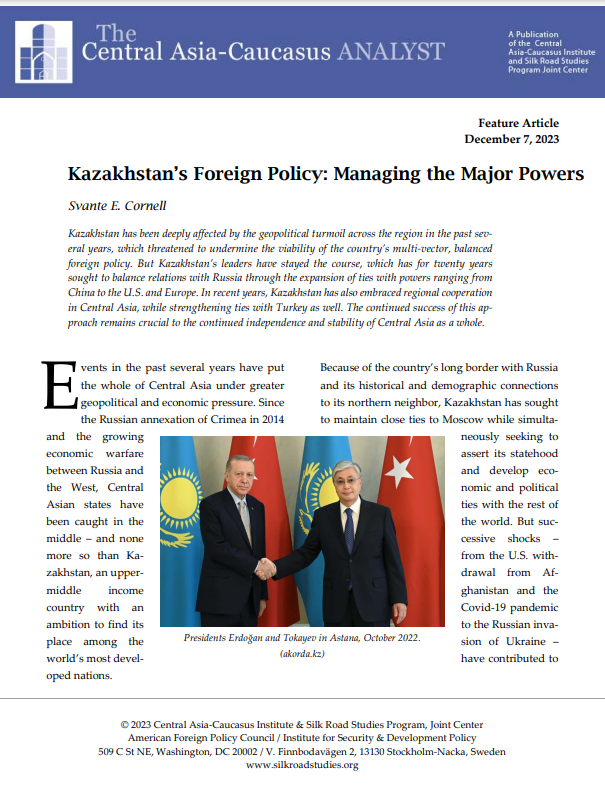Russian Influence in Turkmenistan: Rapprochement or Pragmatism?
Slavomir Horak
January 19, 2024
Turkmenistan underwent a serious rapprochement with Russia in recent years, particularly after the establishment of a ruling tandem with Serdar Berdimuhamedow as a formal president and his father, Gurbanguly Berdimuhamedow, who retained significant influence in Turkmenistan’s domestic and foreign policy. Due to a few viable alternatives, Russia represents the balancing factor for Turkmenistan towards the increasing Chinese influence over the country and the principal supporter of the regime. On the contrary, Turkmenistan remains a loyal partner in the region for Russia, where the most significant players (Kazakhstan and Uzbekistan) expressed their cautious approach towards Russia's advance in Ukraine.
Kazakhstan’s Foreign Policy: Managing the Major Powers
By Svante E. Cornell
December 8, 2023
Kazakhstan has been deeply affected by the geopolitical turmoil across the region in the past several years, which threatened to undermine the viability of the country’s multi-vector, balanced foreign policy. But Kazakhstan’s leaders have stayed the course, which has for twenty years sought to balance relations with Russia through the expansion of ties with powers ranging from China to the U.S. and Europe. In recent years, Kazakhstan has also embraced regional cooperation in Central Asia, while strengthening ties with Turkey as well. The continued success of this approach remains crucial to the continued independence and stability of Central Asia as a whole.
Navigating Complex Choices: The EU's Dilemma With Georgia
By Kornely Kakachia
November 30, 2023
On November 8, the European Commission recommended granting candidate status to Georgia. The acceptance or rejection of these recommendations will be determined by a vote from the 27 EU member states in mid-December. If approved by the European Council, this decision would mark a significant milestone in Georgia’s extensive pursuit of European integration, reflecting the historical transformations occurring in the region. As the EU endeavors to anchor Georgia within its newly defined geopolitical sphere, the country is still required to address nine priorities, along with two additional conditions related to combating disinformation. These include countering anti-EU disinformation, foreign information manipulation, and interference against the EU’s values. Another pivotal condition for Georgia involves ensuring a closer alignment of its foreign policy with the EU’s Common Foreign and Security Policy (CFSP).

Russia’s Menu of Manipulation in Kyrgyzstan
Johan Engvall
November 27, 2023
Kyrgyzstan is fertile soil for Russian manipulation. Institutional enmeshing with Russia, lack of alternative security protection, old and new economic linkages, and traditional values vulnerable to Russian propaganda have enabled Moscow to retain a firm grip on Kyrgyzstan. Meanwhile, Russia’s war in Ukraine has led to greater uncertainty. There are opportunities for Kyrgyzstan to diversify external relations, but also risks of new dependencies and greater insecurities vis-à-vis Russia.

Ochamchira: Russia’s New Naval Base In The Caucasus
By Stephen Blank
November 15, 2023
Russia has recently announced that it has obtained a new naval base on the Black Sea at Ochamchira. The base is located in Northwestern Georgia in the Abkhazian territory Russia conquered from Georgia in 2008, close to several other Russian army bases there and in neighboring South Ossetia, another region conquered in the 2008 war. This new base represents another example of Russian imperialism in progress. This imperialism is the same force that drove and now drives Russia’s ongoing aggression against Ukraine.





